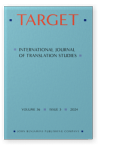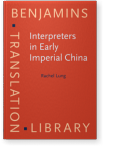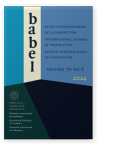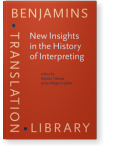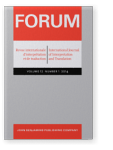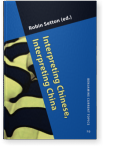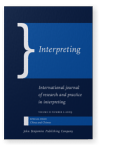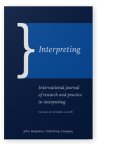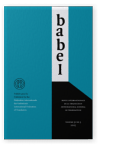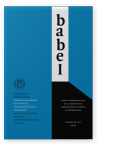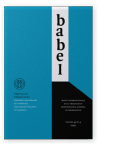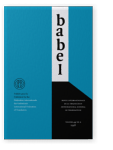Rachel Lung
List of John Benjamins publications for which Rachel Lung plays a role.
Journal
Title
Interpreters in Early Imperial China
Rachel Lung
[Benjamins Translation Library, 96] 2011. xvii, 181 pp.
Subjects History of linguistics | Translation Studies
2024 Relay interpreting ( chongyi ) as auspicious rhetoric in discourse on China-bound diplomatic visits Babel 70:6, pp. 806–824 | Article
Interpreting is considered no more than a technical necessity in modern times. Yet millennia ago, China-bound relay interpreting, chongyi
重譯, could symbolize auspiciousness, often foreshadowed via anomalies in plants or astrology. Its subtle ideological associations can be inferred by… read more
2016 Defining Sillan interpreters in first-millennium East Asian exchanges New Insights in the History of Interpreting, Takeda, Kayoko and Jesús Baigorri-Jalón (eds.), pp. 1–26 | Article
Interpreting officials are rarely documented in standard histories of imperial
China; civilian interpreters are even harder to trace. Surprisingly, however,
Japanese monk Ennin’s (794‒864) diary of his China sojourn (838–847) contains
thirty-eight references to Sillan interpreters. It is a… read more
2014 The Importance of Translation in Xuanzang’s Life FORUM 12:1, pp. 79–102 | Article
Abstract/Résumé
Xuanzang (600-664) est une figure iconique pour les études traductologiques et pour le bouddhisme en Chine. Son pèlerinage en Inde, ses réflexions sur les principes de traduction et ses nombreuses traductions de « sutra » ont fait l’objet de nombreuses études. Ses traductions de «… read more
2011 Perceptions of translating/interpreting in first-century China Interpreting Chinese, Interpreting China, Setton, Robin (ed.), pp. 11–28 | Article
2009 Perceptions of translating/interpreting in first-century China China and Chinese, Setton, Robin (ed.), pp. 119–136 | Article
This article analyzes evidence of translating and interpreting activities (indiscriminately referred to as yi (譯), which also denotes translators or interpreters in classical Chinese) in first-century China between the Latter Han (25–220 AD) Chinese administration and non-Han Chinese minority… read more
2008 Translation officials of the Tang central government in medieval China Interpreting 10:2, pp. 175–196 | Article
The article documents and differentiates two kinds of translation officials in the central government of the Tang dynasty (618–906 AD) in medieval China: translators in the Court of Diplomatic Reception (Yiyu 譯語) and translators in the Secretariat (Fanshu Yiyu 蕃書譯語). The distinction between them is… read more
2005 Translation training needs for adult learners Babel 51:3, pp. 224–237 | Article
A survey on the translation training needs of adult learners in Hong Kong was conducted in February 2002. Quantitative and qualitative data were collected from 185 applicants of a Postgraduate Diploma in Translation programme through a standard form (see Appendix I) requesting demographic and… read more
2004 Attitudes towards a literature-oriented translation curriculum Babel 50:1, pp. 3–12 | Article
Abstract
This paper presents findings of a qualitative study with 27 subjects, of attitudes towards a literature-oriented translation curriculum. Based on four group and individual interviews guided by a common interview protocol, the authors presented and analysed the results of the study, with… read more
1999 Note-Taking Skills and Comprehension in Consecutive Interpretation Babel 45:4, pp. 311–317 | Article
Abstract The paper touches on how systematic training and in-depth training in note-taking skills are related to comprehension in interpretation. It argues for a more focused role of note-taking in the interpretation curriculum. This paper identifies five factors resulting in interpretation failure… read more
1998 On Mis-translating Sexually Suggestive Elements In English-Chinese Screen Subtitling Babel 44:2, pp. 97–109 | Article
Abstract English-speaking movies and television series are flourishing in Hong Kong, and Chinese screen subtitles are often provided to the audience. Studies relating to subtitling have often discussed reduction methods and reduction categories, but little work has touched on the areas of and… read more
